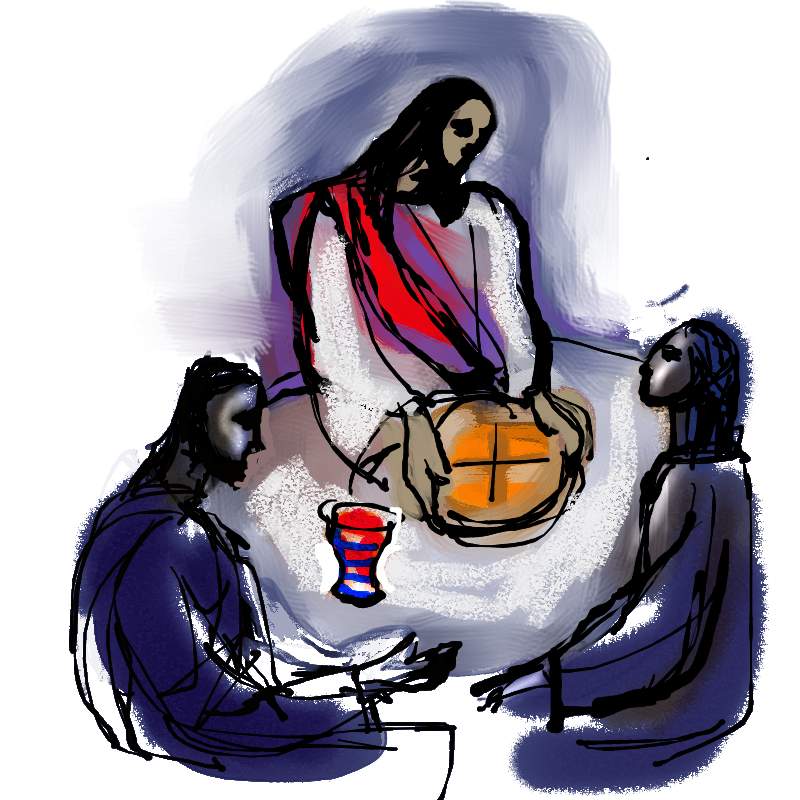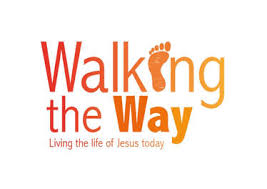March 21st 5th Sunday in Lent, Reflection by Revd Sue McCoan
As well as being the first day of Spring, and of Passiontide, today is also the day of the Census – the day when we have to stand up and be counted. Or sit down and be counted, if you’re doing it online. If you haven’t already done your return, please do it. Government and local authorities need that information to be able to plan ahead for school places, likely care needs, and so on. And if we think it’s a nuisance, remember Joseph and Mary had to go all the way to Bethlehem to do theirs. We’ll come back to the idea of ‘stand up and be counted’ later on.
Our bible reading this morning, which we’ll hear shortly, is from the gospel of John, and something struck me about that gospel, while I was preparing for this, that I’ve not noticed before. In the other three gospels, we often see Jesus saying, ‘Follow me’. He calls disciples, he challenges casual onlookers, he draws people into deeper relationship. And each time we hear Jesus say, ‘Follow me’, to someone else, we also hear him saying it to us.
But in John’s gospel, there’s only one instance of Jesus saying ‘follow me’, which happens to be to Philip, who also appears in today’s reading. Everybody else is either there already, like the woman at the well, or is fetched by a friend, or they come looking for Jesus of their own accord. The first 2 disciples, Andrew and his friend, were with John the Baptist when they saw Jesus and were instantly drawn to him. Andrew fetched his brother Simon; Philip, when called, fetched Nathanael. Nicodemus the Pharisee comes to Jesus by night. The way John tells it, it’s as if Jesus didn’t need to say follow; people were just drawn to him.
In the reading, we’re in Jerusalem, at the time of the Passover Festival. Jesus has just made his triumphal entry into the town. Let’s hear the reading now, please.
Bible reading: John 12:20-33
‘Among those who went up to worship at the festival were some Greeks’. Why did these particular people want to see Jesus? There were plenty of other teachers around, most with more credentials and more official recognition than Jesus.
We’re not given any background to these Greeks, but we do know they were followers of the Jewish faith – they had come to celebrate the Passover festival – but they are still referred to as Greeks we know they were not converts to Judaism, they were Gentiles. And that in turn means they can only go into the outer court of the Temple. They’ve come all this way, but they can go no further. They can’t really be part of it.
Standing in their shoes, in their nearly-but-not-quite-belonging, in their faith-but-not-quite-approved, you can see the attraction of Jesus. Jesus preaches inclusion. He welcomes the poor, the unclean, and the downright unholy; he eats with them, and has a laugh with them. And Jesus challenges authority, by making his dramatic entrance, by debating with senior religious leaders. All their lives they have been told, ‘this is not for the likes of you’, and now here is Jesus saying, ‘you are exactly the people God wants’. Of course they want to see Jesus.
I wonder what they were expecting. Maybe they hoped this maverick, subversive man would lead them into new adventures and excitement. Maybe they thought this would be the Passover they could really celebrate. They may not have been prepared for the sombre, reflective Jesus whom they meet.
Jesus here is counting the cost of being a maverick, being subversive. He has stood up to be counted, against the authorities, and those authorities, the establishment, will fight back, and fight back hard. Jesus is having to deal with what that means. He will be glorified – he will show God’s supreme glory to the world – but only by giving up his life. The grain of wheat has to be buried in earth before it can grow – but for that single grain, it’s the end. For Jesus to defeat the forces of evil in the world, he has to give himself up to those forces.
No wonder his soul is troubled. He knows what these forces can do. He prays, as he will pray later in the garden of Gethsemane, should he ask for a way out? But he knows the answer. He will do this, even though he is dreading it to the core of his being. And, to affirm his decision, the voice of God breaks through: this is how God’s name is glorified. That affirmation gives Jesus the confidence that he is doing the right thing, and the courage to go through with it.
For the people around Jesus, this is a sobering moment. This is the time when they begin to realise that this isn’t going to have a happy ending; Jesus won’t overthrow the Romans and set up a new regime. This is the time when they start to as themselves the question, do we really want to go through with this? Are we prepared to stand up and be counted as his followers? The poor Greeks might be wishing they’d never come. They could have walked away, any of them. But they would know, if they’d been listening, that walking away would mean missing so much and so much.
We could draw parallels with people who stand up to be counted today. We could think of Rachel Corrie, who stood up for Palestinian people and was killed by an Israeli bulldozer; it was her anniversary this week. We could think of governments who would rather clamp down on protesters than address the issues that sparked the protest. We could wonder what we might do ourselves in such a situation.
But today, in this service, I invite us not to go there. Let’s instead stay with Jesus. Let’s walk with him through his decision, through his challenges, through his compassion and his passion, as we follow through Passiontide and through Holy Week. Let’s draw on his courage to inspire our own courage when we face difficulties; and when we think we can face no more, let us always remember that Jesus is there beside us, seeing us through.
We stand up to be counted as his disciples, because he stood up to be counted for us.
Amen.





